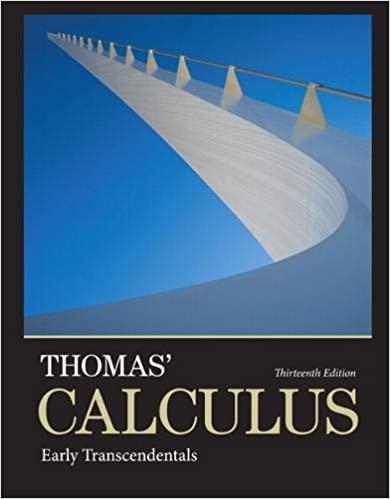The rules of exponents tell us that a 0 = 1 if a is any number different
Question:
The rules of exponents tell us that a0 = 1 if a is any number different from zero. They also tell us that 0n = 0 if n is any positive number.
If we tried to extend these rules to include the case 00, we would get conflicting results. The first rule would say 00 = 1, whereas the second would say 00 = 0.
We are not dealing with a question of right or wrong here. Neither rule applies as it stands, so there is no contradiction. We could, in fact, define 00 to have any value we wanted as long as we could persuade others to agree.
What value would you like 00 to have? Here is an example that might help you to decide.
a. Calculate xx for x = 0.1, 0.01, 0.001, and so on as far as your calculator can go. Record the values you get. What pattern do you see?
b. Graph the function y = xx for 0 < x ≤ 1. Even though the function is not defined for x ≤ 0, the graph will approach the y-axis from the right. Toward what y-value does it seem to be headed? Zoom in to further support your idea.
Step by Step Answer:

Thomas Calculus Early Transcendentals
ISBN: 9780321884077
13th Edition
Authors: Joel R Hass, Christopher E Heil, Maurice D Weir





